#rogue class homestuck
Explore tagged Tumblr posts
Text
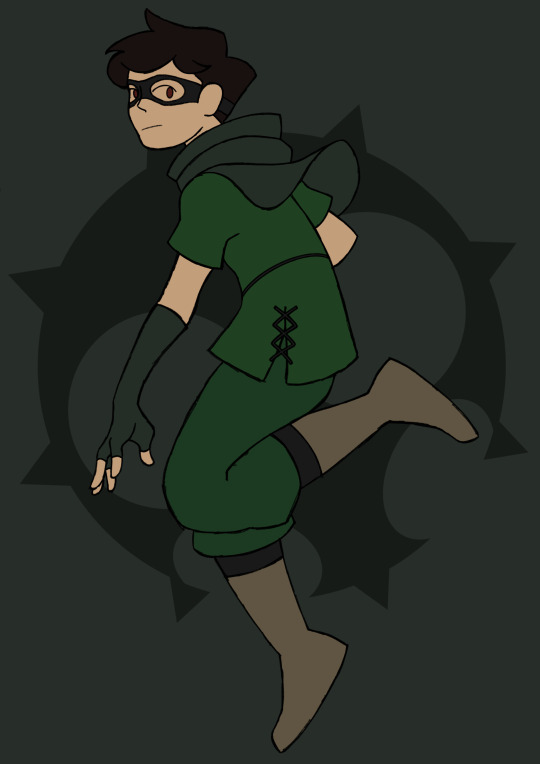
since we're on the topic of my cringe interests, here i am in my ultimate cringe form >:) !!!!
#homestuck#homestuck fanart#rogue of doom#doom aspect#doom homestuck#rogue class#rogue class homestuck#classpect#yes#i have also classpected my immediate friens and sister#and no#none of them have read or will ever read homestuck#but man#i fucking loveeeeee these hypotheticals >:)))
32 notes
·
View notes
Text
I haven't made a homestuck post in a bit so I just wanna talk about how much Nepeta as a character makes me a bit sad. All Rouges in Homestuck have problems with romance related to their aspect, with Roxy, as a Rouge of Void, fighting to feel relevant and seen through attempting to be seen as a "fun-loving, hot girl". As well as Rufioh, as a Rouge of Breath, struggling to stay bound in a romantic relationship, cheating on Damara with Horrus and wanting to leave Horrus by the time we're introduced to him. Heart players also struggle with Romance. This is shown with Meulin (who I have made a post about because I love Olive Bloods), who has had a failed relationship with Kurloz and a toxic moirailigence with Horuss. And Dirk, who fails to realize that he only loves his own idea of Jake until going into trickster mode. Nepeta as a Rouge of Heart is a heartbreaking mishmash of both of these traits. Not many people know, but Nepeta uses her shipping wall as a coping mechanism for her feelings of loneliness. Her unreciprocated flushed feelings for Karkat don't help her in the slightest. Although a lot of the ships she has come true, due to the fact that she's a Rouge, she can only give the romantic relationships she craves to others, guiding others to a treasure she cannot possess. Despite this, she's a very upbeat and pawsitive character (pun intended). She holds no negative feelings towards Terezi despite Karkat having a crush on her, in fact, she doesn't hold any negative feelings towards any of the Beta Trolls, including Eridan, who she actually feels sad for after discovering he died. Speaking of Eridan, I would like to point out that both Eridan and Nepeta have a LOT of things in common and unique interactions that not many people talk about. Firstly, both Nepeta and Eridan are the only two Beta Trolls who never got kissed. Along with this, while Eridan's arc revolved around switching sides and wanting to join Jack Noir, resulting in his death, Nepeta's arc revolves around her undying loyalty to her friends, which also results in her death. Also, Eridan is canonically the ONLY troll in Homestuck to have any romantic feelings for Nepeta. Along with this, Nepeta is the only character besides Feferi that Eridan asks to be matesprits with. Small tangent aside, Nepeta's lack of aggression towards the beta trolls is due to the fact that she has the only healthy moirailigence in the entirety of Homestuck. Although she often gets upset at Equius' behavior, she overall enjoys his presence and have a mutually beneficial relationship, with Nepeta calming down Equius' constant inner anger and strength complex and Equius letting Nepeta vent her frustrations to him about her deep feelings of loneliness. Her loyalty to her friends and complex inner turmoil as a Rouge of Heart leads her to have a deep wish to experience a love that will never flee from her. She ends up feeling as though she needs to be loved in order to be whole as a person and although the feelings towards Equius are strictly platonic, it's that loyalty and understanding that leads her to want to save him from Gamzee during Murderstuck.

In the end, Nepeta as a Rouge of Heart is a girl with a simple wish. To find love in order to not feel lonely and even though she doesn't succeed, she still fights to protect those she holds closely and while I believe her arc should've been written WAY BETTER AND KILLING HER OFF WAS SUCH BULLSHIT AND HUSSIE DIDN'T EVEN BRING HER BACK WHEN JOHN GOT THE ABILITY TO DO THAT AND IT MADE ME SO ANGRY!!! She's still one of the most enjoyable characters in all of Homestuck and my personal favorite Beta Troll. *Cough cough* anyway read S33K THE HIGHB100D by @pastabaguette it's beautiful. *Cough cough*
#homestuck#beta trolls#nepeta leijon#homestuck nepeta#nepeta my beloved#equius zahhak#rogue class#heart aspect#eridan ampora#s33k the highb100d#pastabaguette#gosh i love nepeta
71 notes
·
View notes
Text
Thieves & Rogues: Inundation and Redistribution
A day late, I'm aware; turning 18 will do that to a girl. I'm now older, and definitely not wiser.
The Thieves & Rogues are another contentious group; particularly the Thieves for various discourse-generating reasons - but the Rogues have their pitfalls and fall victim to mischaracterisation a lot more than you'd assume.
The Thief:Rogue dichotomy embodies inundation, redistribution and possession. It's the authority over who gets to hold their Aspect for themselves; whether it's them or somebody else, that's what being a Redistribution Class is about.
There's often some insecurity about their capacity to hold it in play as well - and they tend to use a lot of their opposite Aspect's forces; after all, what do you get when you take something but the absence of it, and therefore its opposite?
Canonical Thief players are Vriska Serket (Thief of Light) and Meenah Peixes (Thief of Life).
Canonical Rogue players are Roxy Lalonde (Rogue of Void), Nepeta Leijon (Rogue of Heart), and my arch-nemesis Rufioh Nitram (Rogue of Breath).
Point A - the narrative function of the Thief.
The Thief is the one with active distribution of their Aspect; and therefore the one liable to actively steal it. This, on paper, sounds pretty nasty - there's a reason why Thieves are lumped in with the nebulously 'bad' classes; but it's a neutral role with possible applications in either sense.
They often hold a deep-seated obsession with their Aspect; they think it's something that's out to get them and conflate an excess of it with an absence. Their perceived lack of it motivates them to hoard it, as much as possible.
Vriska Serket, the Thief of Light, is contentious for a damn good reason. Imbued with ungodly plot armour and fortune's favour, she seizes control of the narrative by force, all the while bemoaning her unlucky streak & employing the most unsubtle methods of manipulation she can think to use.
Meenah Peixes, the Thief of Life... does not understand the consequences of her actions; period. She thinks Life is out to get her, exacts every bit of free will she has out of spite and cultivates discourse and stagnation to try and encourage character development. (Oh, yeah, she also... kills people. Like, a lot.)
Their opposite Aspects are, therefore, pretty prevalent! By taking away their Aspect; they leave the inverse behind.
Vriska stealing Light leaves Void. Meenah stealing Life leaves Doom.
Often, it's almost as if they're using their inverse to cultivate their actual Aspect; Vriska uses offscreen events to justify onscreen developments - it's how she 'takes luck'. Meenah uses suffering and control in order to encourage growth - it's how she 'takes life'.
They care very little for their Aspect at the centre of it all, despite their perceived obsession; they don't seem to understand the value of it at all. That's the interesting part, I feel.
Point B, the practical function of the Thief.
Now, taking the Aspect is a very powerful ability in the right hands. We don't just see Vriska metaphorically rob fortune, she literally steals luck from her enemies mid-fight and utilises chance and possibility in order to get the upper hand.
Meenah takes 'taking life' about as seriously as you can get - not only does she really like killing people, but as the Condesce everything she did resulted in stagnation and decay in her wake as she robbed the worlds she ruled of the ability to develop; using control and hegemony to cultivate development and failing miserably.
The opposing Aspect, again, plays a prominent role! Vriska forgoes certainty and manipulates the absence of a definitive outcome to play around with luck. Meenah forgoes development and enacts control on the people beneath her to play around with change.
Point C, the narrative function of the Rogue.
I'm gonna use the Thief's concluding point as the jumpoff point for the Rogues; whereas the Thief devalues their Aspect, the Rogue puts too much stock in its importance. Their Aspect is too important to them; and so their relationship with it differs.
Passive classes tend to act without realising it, and the Rogues are no different - I'd argue their presence often leads to their Aspect being taken in a way they don't realise they're doing.
Roxy Lalonde, Rogue of Void, is desperate for attention, and yet obfuscates knowledge, is isolated from all society and would rather get drunk at the start of her arc than face the truth of her situation. I'd argue that she downplays her own importance as a person in the face of her friends' catastrophic communication failures. By being around, she takes the Void from her session and opens up ways to communicate whilst learning to give irrelevance to things.
Nepeta Leijon, Rogue of Heart, puts people into boxes. She makes them into little cariacatures on her walls, plays matchmaker in her stories; and yet she's also one of the most emotionally mature and genuine trolls in the story - she wears her Heart on her sleeve, and doesn't deny it. By being around, she takes the Heart from her friends by way of drawing out truer selves, as we see in her relationship with the insecure & disingenuous Equius.
Rufioh Nitram, Rogue of Breath, takes people's sense of purpose and direction and makes their agency depend on his presence in their life. He does Damara and Horuss dirty time and time again, and yet they can't cut him off because he's made himself too important. And yet there he is, spineless, giving away his own free will because he holds no security in his selfhood. He's trapping people in relationships without realising. I also want to drop an anvil on his head.
The common thread, despite the differing situations, is the indirect usage of the opposing Aspect to passively take away the true Aspect and the character development involving a realisation of their Aspect's value and the importance of keeping it for oneself. Roxy is the only Rogue whose development we see in full, unfortunately; but there's snippets with Nepeta and Rufioh Nitram changing isn't happening any time soon.
Point D, then. The practical function of the Rogue.
Once again, Roxy is our only point of reference by virtue of being the only God-Tiered Rogue; but luckily, she also gives us some really good demonstrations. Roxy literally takes the nonexistence away from something, bringing it into existence.
Inversely, she's capable of giving Void to herself, cloaking herself and by extension her whole session in a veil of invisibility. She's controlling the distribution of Void, letting it both be taken and given; after making her peace with the distribution of it.
So, the common thread is the central question of 'who gets to have my Aspect?'
A Thief would tell you 'me', and a Rogue would tell you 'anyone else'. That's what I feel separates them, and yet don't let that convince you that Thieves are bad and Rogues are good; look at Rufioh. A Thief may take for altruistic reasons, and a Rogue may give away for... not so altruistic reasons!
Get creative with it, that's what I say. How about a Thief of Doom who takes on everyone else's suffering because they're self-sacrificial to a fault? ...Okay, actually, that's my idea, don't take that one.
Anyhow, next week I'll be concluding the 'normal' classes with the Maids and Sylphs! Should be fun, I'll see you then - hopefully on time, too.
#homestuck#homestuck analysis#classpecting#thief class#rogue class#thief of light#thief of life#thief of void#thief of doom#thief of space#thief of time#thief of heart#thief of mind#thief of hope#thief of rage#thief of breath#thief of blood#rogue of void#rogue of heart#rogue of breath#rogue of light#rogue of mind#rogue of blood#rogue of space#rogue of time#rogue of life#rogue of doom#rogue of hope#rogue of rage
69 notes
·
View notes
Note
have you done rogue of void and prince of heart? dick and roxy...
u can't. u can't just say that and expect me NOT to sprite them
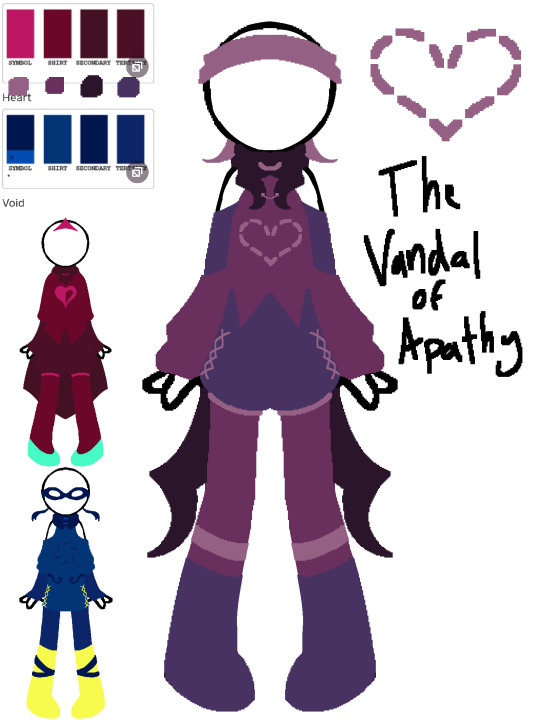

#the way i RAN to create dirxysprite#it was only supposed to be a doodle but...#i lack self control#homestuck combined classes#homestuck#my art#homestuck art#art#artists on tumblr#fanart#homestuck fanart#digital art#classpect#classpecting#homestuck rogue#homestuck prince#roxy lalonde fanart#roxy lalonde#dirk strider#homestuck dirk#hs roxy#homestuck roxy#sprite#homestuck sprite#starzz art#vandal#apathy
205 notes
·
View notes
Text
SKETCHBOOK TOUR!!!!(1/2)









theres gonna 8e more other other peoples n teh next part
#homestuck#art#redesign#headcanon#drawing#roxy lalonde#rose lalonde#rose homestuck#roxy homestuck#rogue class#clowns#rufioh nitram#nepeta leijon#sketchbook tour#sketchbook
58 notes
·
View notes
Text
rogue of heartin'
#homestuck#nepeta leijon#i like the idea of rogues as like#heist prep class#very gimmicky and munchkiny just like a thief#but where a thief is kind of a fly by the seat of your pants type player#a rogue is more like a batman type#if you give them enough prep time theyre crazy strong#so 'stealing from heart' and heart = souls#i like the idea of nepeta being able to use the powers of people she's close to
155 notes
·
View notes
Text
Veritas Ratio: The Rogue of Light
Rogue: The passive stealing class
One who steals aspect for others
Alternatively, one who shares or one who redistributes aspect with others
Light
Abstract: Knowledge, Awareness, Attention, Relevance, Fortune, Luck
Literal: Actual Light (Brightness), Vision, Eyes, the Sun, Stars

This is gonna become a series isn't it?
It is. Now let's get going on discussing everyone's favorite interstellar scholar: Dr. Veritas Ratio!!
Let's get the obvious out of the way: His aspect.

Light is more commonly known as the aspect of knowledge. But instead of talking about he’s light-bound personality wise, why don’t we shake things up a bit? We know that he's a smart and knowledgeable man, but what more can his aspect offer for us aside from that?
To fit with Ratio's Greco-Roman theming, I'll briefly discuss the World of Ideas in Plato's allegory of the Cave.
Forgive me to if I do get the allegory wrong and please feel free to correct me!
The gist of this is that ordinary people are like prisoners chained to a cave, only able to perceive reality through shadow puppets and the distorted noises that bounce off the cave walls. These prisoners were born in the cave and had been raised in the cave, not knowing anything else outside of it; ignorance. It's only when they break out of their chains do these prisoners start their path to enlightenment and they achieve it so once they see the bright sun outside of their cave; the World of Ideas.
Ratio seeks to break everyone from the chains of ignorance and guide them towards enlightenment through spreading his knowledge throughout the universe.

Ratio is the man who would forcefully break the prisoners' chains and nudge them towards the light, as much as he could anyways.
And for one specific character, he hopes it is enough.

We'll get back to him later! Next I want to talk about is Ratio and his connection to Christian Gnosticism, which likely had served as inspiration for the concept of the Light aspect in Homestuck. I will be borrowing ideas from one of optimisticDualist's essays so I highly recommend giving it a quick read before continuing onward.
According to Gnostic myth, the world was created through the desires of an aeon named Sophia, an Emanator of light. I should also note that the Greek word for wisdom is Σοφία.
Sophia longed to understand God in His entirety, but in doing so she committed treason and was thus cast out of heaven. Her desire gave birth to Yaldabaoth: a blind, violent, and ignorant god who knew nothing but himself. He created the material world that you and I perceive, shielded from the light of Sophia that birthed him. Because a blind god made the world in his image, the denizens of his earth are also blind to Sophia.
So what do banished gods have to do with the purple guy?
Well, just like Archimedes and screws, things come back around. In order to save yourself from Yaldabaoth’s world, one must be delivered a certain knowledge that is delivered by a “messenger of light” and thus gain the ability to perceive Sophia and her World of Ideas.
In other words, salvation can be sought in what Gnosticism calls a gnosis.
However, one cannot just simply be gifted a gnosis. Those who seek Sophia’s salvation must be driven to reach it, reach beyond the Demiurge’s dark and imprisoning world and into the intangible, bright world above.
Doesn’t that sound familiar?

By Gnostic definition, Ratio should be an Emanator of wisdom, helping curing others of ignorance and helping them on their way towards enlightenment. Hell, you can even say that he's a sylph with all the constant allusions to healing and helping, especially since that Ratio's a Doctor.

However, we all know that this isn't true. Within Ratio's character stories, it can be inferred that his one goal in life is to become an Emanator of the Erudition. His arduous pursuit of knowledge was likely all in hopes in attracting Nous' gaze.
Yet, despite all his efforts, Ratio was never spared a glance

Dr. Ratio is a model Emanator of wisdom by Gnostic standards, yet within his own universe his Aeon of Erudition does not acknowledge him. No matter how hard he tries, he will never reach the status of a member of the Genius society, almost as if he wasn't destined to be a part of it.
Let’s talk about his class: The rogue.
Rogues in Homestuck are the outcasts of their societies. They're loners, isolated, unable to fit in with the groups they want to identify in.
Rogue of Heart Nepeta Leijon lives alone in Alternia's wilderness far from troll society with her lusus as her only companion that is physically close to her.
She's been explicitly described as lonely, creating comics and ships of herself and her friends in order to mitigate her feelings of isolation from other trolls:

Then there's Rogue of Void Roxy Lalonde, who for her first 16 years of life was the only human within her town of carapaces, whom she provides food for. The only other human in her post-apocalyptic world is more than 1700 miles away.
Being a Void-Bound, her isolation is very much apparent, but her loneliness reaches its apex during her bad end in her Pesterquest route. Drinking herself to a stupor as the undeserving consequences of seeing her mother just once consumes her.
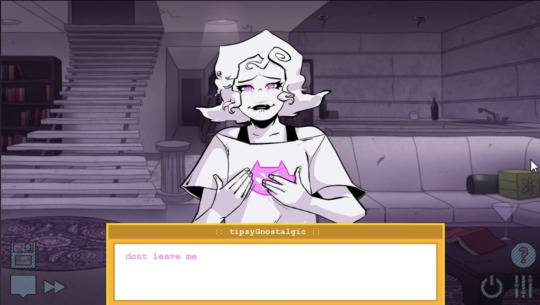
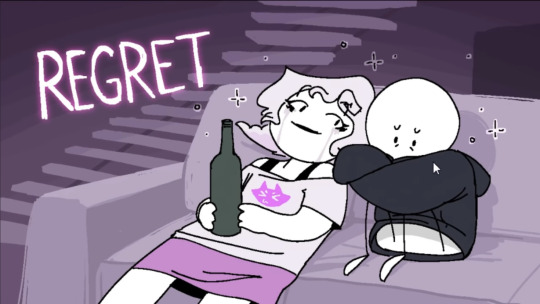
And then Rogue of Breath Rufioh Nitram, who was seen as a mutant for his wings and thus was avoided by his fellow trolls, which took a blow on his self-esteem.

Rogues also struggle with a surplus of their aspect and trying to cope up with that extra while it consumes them. Nepeta taking on the personas of other people through roleplaying, as well as her cave walls being covered in shipping grids. Rufioh living a literally directionless grubhood as travels with a nomadic group called the Lost Weaboos, not to mention his wings, a symbol of freedom, being the cause of why he views himself so lowly. And then there's Roxy, who feels so alone in the carapacian bastion that she fills that void with insobriety, befuddling her mind.
So what does this have to say about Dr. Ratio? All three rogues here have exhibited some type of self-worth issues and a desire to connect with others, but due to being so engulfed by their aspect, it hinders them from reaching that goal...
What if tiny Ratio exhibited such intellect at such a young age that throughout his childhood, he was told that he would be a great scholar growing up? Maybe his genius would earn him a spot within the Genius Society. He was even admitted into a university during his adolescent years.

As that is impressive as that sounds, can you imagine how isolating that can be for a child? Ratio, the only kid in class with his classmates years above him, talking about things outside of academia that he's too young to understand. Meanwhile Ratio likely doesn't interact with those his age as they couldn't provide anything to stimulate his brain. It could also be vice-versa too: Ratio trying to talk to them about topics far beyond their comprehension and they just start to distance themselves from him, unable to understand him, making an outcast out of him.
His intelligence and genius isolates him from making any genuine friendships during his formal years of life. At least, any that we know of before 2.1.
This loneliness does seem to follow him well into his adulthood as well: Becoming a celebrity comes with its own flavor of isolation: being surrounded by the limelight yet no one will truly understand you.
And let's not forget about his ambitions to become an Emanator of the Erudition, to become a member of the Genius Society, which he fell short of...

...something that he holds quite close to his chest, a betrayal of his self-perceived character. He became yet, once again, an outcast.
Another thing, I want you guys to got to Ratio's wiki real quick and see how many characters mention him.
How many people do you think were close to Ratio?
Within the team selection menu of Star Rail, Ratio has lines for when he's added to a team with Ruan Mei and Herta, yet the reverse isn't true. Both Genius scholars say nothing when added to a team with Ratio already in it, almost as if they don't acknowledge him.
There is, however, only one character who says something when added to a team with the Mundanite already in it.
Can you guess who it is?
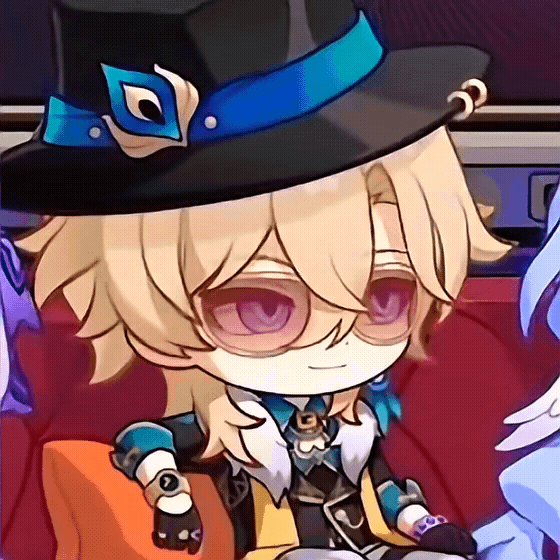
But, as for all classes, their lives aren't meant to be miserable forever. A Rogue must find a way to overcome this loneliness; piecing through the walls of their confines made of their aspect. Instead of just keeping all their aspect for themselves like their Thief counterpart, Rogues find fulfillment through sharing their aspect, often by taking it from one source and distributing it to others. Or in some cases, exchanging something else in order to hand out.
And after all this, I dare say that Ratio joining the Genius Society would be the worst mistake he'd ever make. Stay with me, I have my reasons:
Though we never got to see much of Nepeta in action, we know that she distributes Heart through her shipping chart, arranging couples, distributing aspects of their personalities to see who would go together the best.
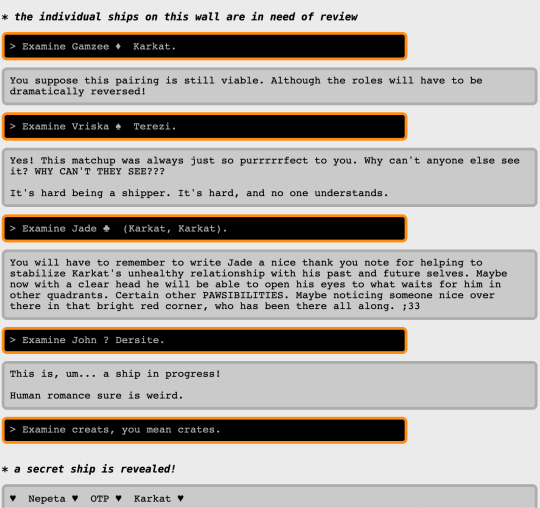
The amount of thought that she puts into her ships puts a Sylph of the same aspect like me to shame!
I digress.
In exchange of bringing attention to the Watterbitch that's about to destroy their game, Roxy was able to obscure the progression of her session from prying eyes, covering it in a blanket of blankness in order to keep Batterwitch from knowing what they're up to.

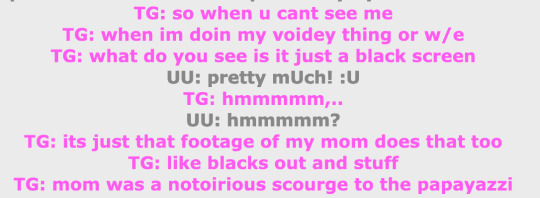
And then for Rufioh, his Alternian counterpart The Summoner lead a rebellion against the Condecse, using his wings to guide his fellow trolls towards freedom.
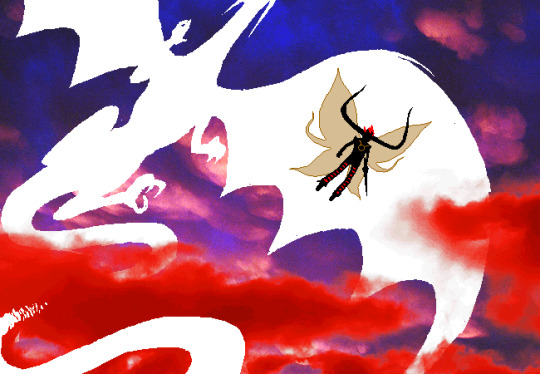
And even after his defeat, his tale lives on as Pupa Pan. While the tale of his rebellious predecessor the Signless is silenced and therefore lost to obscurity, the Summoner's story lives on, allowing the idea of freedom to flow into the mind of young trolls.
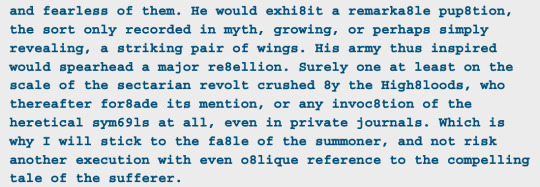
Dr. Ratio's entire character is dedicated to making education accessible for all. Though some of this does end up into his desire to cure people of idiocy, Ratio does truly believe that everyone should get a chance to attain knowledge. I'd even say that his ambition is the reason why he became a professor!

Ratio would dedicate his life towards his goal towards sharing knowledge, even if it meant forsaking Nous' attention in exchange.
His path also affirms this drive. One would expect that someone as knowledgeable as him would be following the path of Erudition, but instead Ratio follows the Hunt.

Ratio's determination to educate, his determination to spread light across the universe manifested into the path he follows. Even if he's never accepted by the Genius Society, he won't let that hinder him or dampen his drive. Ratio just simply strides forward.
The people who make up Nous' faction are described as researchers that rarely interact with each other, and even rarer are the people who are willing to share their research. Ratio would have never found fulfillment in being a member of the Genius Society, I'm almost certain that by joining it he would just be seeking out more and more knowledge, more and more light, becoming more and more isolated.
And one more thing: Rogues are fond of those who manage to get close to them. They appreciate their company and are incredibly dear to them.
For Nepeta, she has Equius.
For Roxy, she has Calliope.
Rufioh had Damara and the Summoner had the Marquise.
So who does Ratio have?
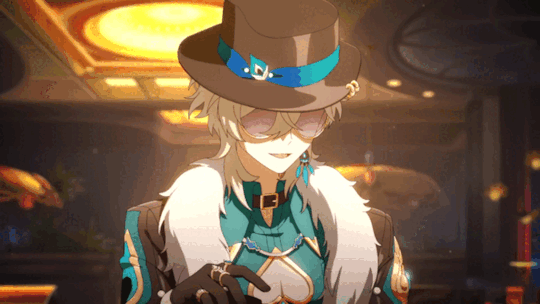
Even outside of a shipping lens, Aventurine is a very important person to Ratio. The 2.1 Penacony story quest demonstrated how much in tandem these two can be together; how much they trusted each other to pull off this huge gamble and draw attention to the death happening in the Planet of Dreams and Festivites. Luck and Knowledge, they both work in perfect harmony.
Aventurine calls him his equal during his episode in “Keeping Up with Star Rail”, claiming that Ratio’s the only one who can understand him.



Ratio and Aventurine must have something closer than just mutual respect however. Before Aventurine goes off into his grandiose self-annihilation, he checks up on him. He risks breaking their façade of disgruntled-coworkers-at-best just to make sure Aventurine can continue on.

Ratio does care for the Stoneheart. So much so that he imparts luck to quite literally the luckiest man alive in hopes that his advice will carry him out of the darkness that he’s in and back into the light. Bringing him out of the blinding Nihility and back into the World of Ideas, back into reality.
And it makes this note all the more important when Aventurine accepts Ratio’s advice, accepting his light when most would brush it off.
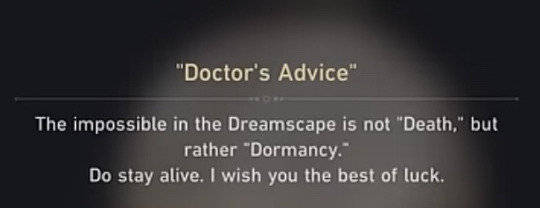
Ratio is a bright person, yet most cannot see past his luminosity and at the same time, he can’t shine bright enough to attract those he aspires to be. To remedy this, the Rogue of Light distributes his lights to others who needs it. He wants to cure those inflicted with ignorance and guide them towards enlightenment.
Knowledge for knowledge’s sake is not his Ratio rolls. His altruism may go against what the Genius Society believes in, but he wouldn’t change his ideals for anyone, steadfast in his determination to cure idiocy.
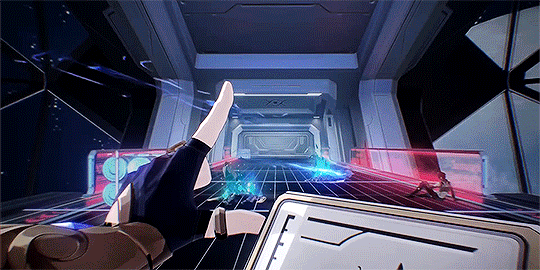
#homestuck#godtiers#classpect#classpect analysis#rogue of light#light aspect#rogue class#hsr#honkai star rail#hsr dr ratio#dr ratio#dr ratio honkai star rail#aventurine honkai star rail#ratiorine
73 notes
·
View notes
Text
Classes of Light - AO Classpecting
Chosen Keywords: Knowledge, Evaluation, Insight, Meaning
TEZ Keywords: Knowledge-seekers, students, problem-solvers, precision, scholars, researchers, resourceful, driven, (fussy, pedantic, insensitive)
CANON: Those bound to the aspect of Light are the universe's knowledge-seekers. They are, above all, driven to learn and understand. They are great alchemists, able to take multiple sources of information and synthesize them into something useful. They are scholars and researchers, absolutely dedicated to knowledge for knowledge's sake. They are the ultimate students, and although that might conjure up the image of people sitting around peacefully waiting for knowledge to be brought to them, that couldn't be further from the truth. The Light-bound will go after knowledge with a fierce intensity that others may find distasteful. They aren't overly concerned with laws or norms, either. They often take rules as simple suggestions, instead searching for loopholes or work-arounds. At their best, the Light-bound are resourceful and driven. At their worst they can be fussy, pedantic, and insensitive.
All of the analysis written below is my own writing, analysis, and thoughts as based on the sources I consulted. The statements are my own analysis, but they may function as a "fill in the blank" statement for you to create your own interpretation of the classpect as you please by replacing the aspect word with any of the provided keywords above.
Sources consulted: (dahniwitchoflight), (rosespecting), (godtier-haven), (TEZ), (MSPA Wiki)
LINK: (Classpecting Analysis Masterpost)
TAGS: [Mage], [Seer], [Witch], [Heir]
TAGS: [Knight], [Page], [Thief], [Rogue]
TAGS: [Sylph], [Maid], [Prince], [Bard]
-aortaObservatory
Knowers/Changers
Mage (Active): Know - Too Much Experience with Light
A Mage of Light is almost constantly experiencing knowledge and evaluation from the people around them and their surroundings, which gives them a unique understanding of how insight and the meaning of something can help a situation... or hurt a situation.
A Mage of Light is flooded with Light (Knowledge, Evaluation, Insight, Meaning), uniquely experiencing both the good and the bad of it. As a result, they gain a unique understanding of what Light is and does, often resenting it or becoming jaded and frustrated with it, but never rejecting it. Their challenge is to become open to new insight or different perspectives than their own.
Heir of Void (Inverse): As the Mage of Light knows Light in a flood of both good and bad, they end up embodying Void, whether on purpose or accidental. They have an indirect relationship with Void; because they know and experience Light (that which is knowledge, evaluation, insight, and meaning), they fully embody and thus must change Void (that which is secrecy, unknown, potential, and possibilities). Because the inverse classpect is a ghost of the true classpect, the Mage of Light does not undergo the Heir of Void's challenge; their relationship with the Heir class and the Void aspect is purely surface level.
~
Seer (Passive): Know - Too Little Experience with Light
A Seer of Light is surrounded by secrecy and many potential unknowns, and lacks knowledge and insight in their life, and as a result are driven to learn everything they can about meaningful evaluation in order to understand what they previously lacked.
A Seer of Light studies Light (Knowledge, Evaluation, Insight, Meaning), craving knowledge of it from their previous lack of it. They seek knowledge of Light with a fierce intensity in order to gain more understanding of it, acknowledging the potential consequences of doing so and dealing with them later. Their challenge is to learn how to translate their insight and knowledge into action and decision, as well as learn how to manage their engagement with Light so as to not overwhelm themself or others.
Witch of Void (Inverse): As the Seer of Light attempts to gain experience with Light from their previous lack of it, they end up changing Void, whether on purpose or accidental. They have a direct relationship with Void; because they change and thus half embody Void (that which is secrecy, unknown, potential, and possibilities), they gain experience with and thus know Light (that which is knowledge, evaluation, insight, and meaning). Because the inverse classpect is a ghost of the true classpect, the Seer of Light does not undergo the Witch of Void's challenge; their relationship with the Witch class and the Void aspect is purely surface level.
~
Witch (Active): Change - Too Little Embodiment of Light
A) A Witch of Light embodies knowledge and the insight it gives them, in order to change their own and others evaluation of what something means.
B) A Witch of Light embodies the evaluation of what something means, in order to change their own and others knowledge and the insight it gives them.
Witches are self-assured and conclusive individualists. They pick and choose which parts and pieces of Light (Knowledge, Evaluation, Insight, Meaning) fit into their own already determined desires, making Light embody themself and changing it to suit their own wants and needs. Their challenge is to achieve a stable balance in themself without losing themself to Light or their own changing whims.
Seer of Void (Inverse): As the Witch of Light changes the pieces of Light within themself, they end up experiencing Void, whether on purpose or accidental. They have an indirect relationship with Void; because they change and half embody Light (that which is knowledge, evaluation, insight, and meaning), they gain experience with and thus know Void (that which is secrecy, unknown, potential, and possibilities). Because the inverse classpect is a ghost of the true classpect, the Witch of Light does not undergo the Seer of Void's challenge; their relationship with the Seer class and the Void aspect is purely surface level.
~
Heir (Passive): Change - Too Much Embodiment of Light
An Heir of Light embodies the ability of evaluation, meaning they are knowledgable; however, only by changing themself can they change the insight they gain and the meaning of it.
An Heir of Light inherits and embodies Light (Knowledge, Evaluation, Insight, Meaning), allowing Light to change themself or itself. They have huge amounts of Light related strengths, allowing themself to be surrounded by Light or naturally gravitating towards it. Their challenge is to not get stuck on Light, to know when to move on and change themself to keep themself balanced.
Mage of Void (Inverse): As the Heir of Light embodies Light within themself, they end up knowing Void, whether on purpose or accidental. They have a direct relationship with Void; because they fully embody and thus must change Light (that which is knowledge, evaluation, insight, and meaning), they know and experience Void (that which is secrecy, unknown, potential, and possibilities). Because the inverse classpect is a ghost of the true classpect, the Heir of Light does not undergo the Mage of Void's challenge; their relationship with the Mage class and the Void aspect is purely surface level.
-
Utilizers/Allocators
Knight (Active): Utilize - Too Much Skill with Light
A Knight of Light would be very skilled in using the knowledge they possess and the insight it gives them, to protect and defend the evaluation of others and the meaning given to them.
A Knight of Light is extremely adept with their Light (Knowledge, Evaluation, Insight, Meaning), their driving effort to protect it and others through it. They are loyal to Light's cause and naturally gifted with it, using it as a tool to achieve whatever they set themself to. Their challenge is to learn how to be less harsh on themself, to accept and learn from failure, and to accept the assistance of others when they need it.
Rogue of Void (Inverse): As the Knight of Light utilizes Light from their loyalty to it, they end up valuing Void, whether on purpose or accidental. They have an indirect relationship with Void; because they utilize and are skilled with Light (that which is knowledge, evaluation, insight, and meaning), they value and thus give/allocate Void (that which is secrecy, unknown, potential, and possibilities). Because the inverse classpect is a ghost of the true classpect, the Knight of Light does not undergo the Rogue of Void's challenge; their relationship with the Rogue class and the Void aspect is purely surface level.
~
Page (Passive): Utilize - Too Little Skill with Light
A Page of Light is a beginner when it comes to learning and evaluating the knowledge they gain, but they repeatedly strive to master it using the insight they've acquired and the meaning they've ascribed to it.
A Page of Light starts unskilled in Light (Knowledge, Evaluation, Insight, Meaning), learning how it works and how to use it to its full potential over time. In their many attempts to master Light, they teach others the value of Light, becoming an unintentional source of inspiration. Their challenge is to keep at it, learn from failure, and eventually master Light, being able to confidently provide Light to others.
Thief of Void (Inverse): As the Page of Light attempts to gain skill with Light from their previous lack of it, they end up allocating Void, whether on purpose or accidental. They have a direct relationship with Void; because they take/allocate and thus do not value Void (that which is secrecy, unknown, potential, and possibilities), they gain skill with and thus utilize Light (that which is knowledge, evaluation, insight, and meaning). Because the inverse classpect is a ghost of the true classpect, the Page of Light does not undergo the Thief of Void's challenge; their relationship with the Thief class and the Void aspect is purely surface level.
~
Thief (Active): Allocate - Too Little Value towards Light
A Thief of Light lacks knowledge and evaluation in their life, resulting in a fierce desire to possess such things for themself and leading to them not understanding the value of the insights they gain and what that means, as they take knowledge and the evaluations of others from others and hoard it all to themself for their own benefit.
A Thief of Light takes Light (Knowledge, Evaluation, Insight, Meaning), either craving it fiercely from their lack of it in their lives or simply because they like it, stealing and hoarding it all for themself and their own personal benefit. Despite their outward confidence with Light, they often take it at face-value without learning of its true value, being unsatisfied with how much Light they hoard and craving more and more. Their challenge is to focus less on attaining and more on learning about the value their aspect, as well as to let others have their aspect and learning why it is important to others.
Page of Void (Inverse): As the Thief of Light allocates pieces of Light to themself, they end up gaining skill with Void, whether on purpose or accidental. They have an indirect relationship with Void; because they take/allocate and do not value Light (that which is knowledge, evaluation, insight, and meaning), they gain skill with and thus utilize Void (that which is secrecy, unknown, potential, and possibilities). Because the inverse classpect is a ghost of the true classpect, the Thief of Light does not undergo the Page of Void's challenge; their relationship with the Page class and the Void aspect is purely surface level.
~
Rogue (Passive): Allocate - Too Much Value towards Light
A Rogue of Light would redistribute, allow others to take, and/or give knowledge and insight to others in the name of balancing the meanings born of evaluation.
A Rogue of Light gives Light (Knowledge, Evaluation, Insight, Meaning) away, either because they have a lot of it already, or are able to get it so easily they don't know what to do with so much of it. They often know the true value of Light, and are able to see where there is too much or too little of Light and redistribute it in a balanced way around themself. Their challenge is to not let Light run dry within themself, and to learn how to healthily balance Light in themself.
Knight of Void (Inverse): As the Rogue of Light values Light within themself, they end up utilizing Void, whether on purpose or accidental. They have a direct relationship with Void; because they value and thus give/allocate Light (that which is knowledge, evaluation, insight, and meaning), they utilize and are skilled with Void (that which is secrecy, unknown, potential, and possibilities). Because the inverse classpect is a ghost of the true classpect, the Rogue of Light does not undergo the Knight of Void's challenge; their relationship with the Knight class and the Void aspect is purely surface level.
-
Enhancers/Destroyers
Sylph (Active): Enhance - Too Much Reliance on Light
A Sylph of Light is a pure source of insight and the meaning behind it, and driven by knowledge and evaluation, attempt to restore/purify the meaning behind others insights.
A Sylph of Light starts off relying on themself for Light (Knowledge, Evaluation, Insight, Meaning), attempting to heal, restore, and enhance Light in others. They are a pure source of Light for others, and though this can cause frustration and irritation in themself and others, they can see ways for Light to help and heal the struggling of others. Their challenge is to learn how to listen to the needs of others instead of assuming they know best, and to balance themself by learning that it's okay to rely on others for Light sometimes.
Bard of Void (Inverse): As the Sylph of Light enhances Light from their love of it, they end up fearing control of Void, whether on purpose or accidental. They have an indirect relationship with Void; because they enhance and rely on Light (that which is knowledge, evaluation, insight, and meaning), they fear control of and thus destroy Void (that which is secrecy, unknown, potential, and possibilities). Because the inverse classpect is a ghost of the true classpect, the Sylph of Light does not undergo the Bard of Void's challenge; their relationship with the Bard class and the Void aspect is purely surface level.
~
Maid (Passive) - Too Little Reliance on Light
A Maid of Light relies on anyone or anything but themself to tell them knowledge and information as well as what it means, before learning how to rely on themself, restoring and purifying their knowledge and what it means for themself through precise evaluation and insight.
A Maid of Light starts off pushed around by others' view of Light (Knowledge, Evaluation, Insight, Meaning), but eventually allow Light to heal, restore, and enhance themself, making them into an entirely new person and purifying their aspect to themself. They start out relying on others for Light or being told by others how to interact with Light. Their challenge is to listen to themself instead of others, and to not let others opinions dilute their aspect as they restore it for themself and allow it to make them into a new person.
Prince of Void (Inverse): As the Maid of Light attempts to gain reliance on Light from their previous lack of it, they end up destroying Void, whether on purpose or accidental. They have a direct relationship with Void; because they destroy and thus cannot control Void (that which is secrecy, unknown, potential, and possibilities), they gain reliance on and thus enhance Light (that which is knowledge, evaluation, insight, and meaning). Because the inverse classpect is a ghost of the true classpect, the Maid of Light does not undergo the Prince of Void's challenge; their relationship with the Prince class and the Void aspect is purely surface level.
~
Prince (Active): Destroy - Too Little Control of Light
A Prince of Light is surrounded by knowledge and the evaluative demeanor they crave, but they can't control it or have no means of reaching it, so they lash out because of their own insight and meaning, to destroy the evaluated knowledge that others have, in the name of their own insight and meaning.
A Prince of Light destroys Light (Knowledge, Evaluation, Insight, Meaning) with Light or in the name of Light, and as a result, often end up appearing as Void (Secrecy, Unknown, Potential, Possibilities) at first glance. Princes start off with disdain or hate for Light, likely because of its overwhelming presence in their lives, and because despite its abundance, they can never seem to grasp or control it for themself. Their challenge is to be able to recognize Light's presence in themself before they destroy themself beyond repair, and learn that they do not need to control or bend Light to their will.
Maid of Void (Inverse): As the Prince of Light destroys pieces of Light in themself and others, they end up gaining reliance on Void, whether on purpose or accidental. They have an indirect relationship with Void; because they destroy and cannot control Light (that which is knowledge, evaluation, insight, and meaning), they gain reliance on and thus enhance Void (that which is secrecy, unknown, potential, and possibilities). Because the inverse classpect is a ghost of the true classpect, the Prince of Light does not undergo the Maid of Void's challenge; their relationship with the Maid class and the Void aspect is purely surface level.
~
Bard (Passive): Destroy - Too Much Control of Light
A Bard of Light is surrounded by a lot of evaluated knowledge, but fears being controlled by it or fears the control such things have over them, and as such ignores the evaluated knowledge and allows it to deteriorate via keeping it unknown and letting it wonder into possibilities; only by embracing meaningful insight can they begin to destroy the secrecy that destroyed them.
A Bard of Light allows Light (Knowledge, Evaluation, Insight, Meaning) to be destroyed via simply not reaching out for it, and ignoring its presence in their lives, leading to them appearing as Void (Secrecy, Unknown, Potential, Possibilities) at first glance. This is typically due to a fear of being controlled by Light; while they may see benefits to what it could offer them, they can also see all the downsides to it simply because of their fear of what could go wrong. Their challenge is to be able to embrace Light and not be ruled by its whims, learning to control the way it impacts themself without letting it be destroyed.
Sylph of Void (Inverse): As the Bard of Light fears control of Light within themself and others, they end up enhancing Void, whether on purpose or accidental. They have a direct relationship with Void; because they fear control of and destroy Light (that which is knowledge, evaluation, insight, and meaning), they enhance and rely on Void (that which is secrecy, unknown, potential, and possibilities). Because the inverse classpect is a ghost of the true classpect, the Bard of Light does not undergo the Sylph of Void's challenge; their relationship with the Sylph class and the Void aspect is purely surface level.
#mage of light#seer of light#witch of light#heir of light#knight of light#page of light#thief of light#rogue of light#sylph of light#maid of light#prince of light#bard of light#classpecting#classpect analysis#homestuck#light classpects#classes of light#ao classpecting#classpect masterpost
88 notes
·
View notes
Text
The 12 Classes of Doom.
“Doom is the Aspect of inevitability, destiny, fate, conformity… Doom Players are known to be good listeners, people who understand and will empathize, even if they don’t know how to fix many issues. They seem to be okay with fate, with the way things work, with both contentment and pain. Doom Player Sollux knew that he was going to die, and he accepted it, knowing nothing could be done about it. Doom can be heavily emotional”.
“Doom is a poetic Aspect, and it’s extremely interesting, although rarely depicted in the comic. A Doom Player’s struggle might be about acceptance, a doubt about how it all is supposed to work. It is realistic and skeptical, not always pessimistic instead. Doom can be stability, having an outlook on life that is healing in their own way. I have heard from a Doom Player that “the Life-Doom Aspect pair is the facet of a person that deals with healing. While Life heals through change and improvement, Doom heals through acceptance and adjustment”. This difference is sometimes described as “the vent friend” (Doom) and “the advice friend” (Life). Life is the opposite Aspect to Doom, and it is serving and helpful”.

Sburb Players each have a combination of an Aspect and a Class. Aspects are understood to represent what a player’s goals and actions in life are caused by. A Class is within an Aspect and understood to represent the way they deal with their Aspect.
The Sburb Classes are Maid, Page, Mage, Knight, Rogue, Sylph, Seer, Thief, Heir, Bard, Prince, and Witch. (Lord and Muse*)
(*Classes Lord and Muse seem to only be possible in either Cherub society or in two-player sessions. They are very absolute and it’s rare for a human to identify with their descriptions. I will have to leave them out here and only write about the remaining twelve :)
Adding the Classes to the Aspect of Doom will result in twelve God Tiers. My analyses of them are as follows:
1st God Tier: Witch of Doom
Witch is the Active Class of manipulation. Witches are known to “control” their Aspect, both literally and figuratively. A Witch of Doom, specifically, would be one of the most repressed people in their lives, always shutting off what should be natural (though they would not be blind to it, they’re not naive about what fate is supposed to bring, they simply no not want to accept that it is true). Witches are characterized by rebellion, and Doom’s rebellion is against fate, the condemnation, sometimes even death. It is impossible to escape from your Aspect but they try their best, but does escaping from destiny not end up becoming your destiny?
Witches of Doom are the most frightened of Witches, but they’re also probably the strongest. I can see them being good liars, and pretty optimistic people, maybe trying to hide the realism or nihilism that might be building up inside them, begging to be seen. They would want to appear more as a Life Player, be helpful and free from destiny and/or suffering. It is through accepting suffering that they will become well-developed Doom Players.
2nd God Tier: Heir of Doom
Heir is the Passive Class of manipulation. Heirs are known to “influence” their Aspect or through their Aspect, both literally and figuratively. An Heir of Doom, specifically, would passively manipulate fate in a way that might be shown as “coping”, maybe tricking themselves and those around them into believing the opposite of the truth, for example, that everything will be okay when in reality they know it won’t. It can also be the opposite, if they are mostly negative; they could bring people to believe that a perfectly safe and fine situation will actually end in great tragedy. They don’t do this on purpose all the time, though, and unlike Witches, they have more control of that power. It’s not only their way of dealing with fate, it is also what they are naturally inclined to do. The challenge in an Heir of Doom’s life would be not being in control of what is to come.
Heir of Doom is a canon Homestuck God Tier. Mituna Captor is the character that holds that title.
3rd God Tier: Mage of Doom
Mage is the Active Class of knowledge. Mages are known to “understand” their Aspect or through their Aspect, both literally and figuratively. A Mage of Doom, specifically, would be aware of everyone’s fates and their own as well. I guess in a non-fantasy world that would be through “connecting the dots” and great observation skills. Mages are the most aware of where they are and of what their Aspect means, so Mages of Doom would be completely accepting of, you know, acceptance itself. In subtle cases they might be realistic people who don’t try to defeat their doom, and in extreme cases they might be people who are completely in peace with the fact that they are going to die. It will depend from Player to Player, but Doom will usually have a connection with suffering. Mages of Doom would be understanding of everyone’s suffering, maybe the perfect empaths. Their mind would never be focused on fixing the inevitable, they only accept it as it is; because if it’s meant to go this way, it’s for a good reason. They don’t go against fate.
I like to believe a Mage of Doom would read this and go “yeah. Guess I’m a Mage of Doom then”.
Mage of Doom is a canon Homestuck God Tier. Sollux Captor is the character that holds that title.
4th God Tier: Seer of Doom
Seer is the Passive Class of knowledge. Seers are known to “study” their Aspect or through their Aspect, both literally and figuratively. A Seer of Doom, specifically, would analyse fates and what they might be, what might be hidden behind them, what the reasons for them might be… They are analysts, like every Seer, but of what wouldn’t really appeal to others; of death, suffering, drama, the inevitability of many aspects of life. Seers of Doom would be really interesting people with many interesting hobbies. I can see them, like some of the Time Players, enjoying collecting bones, or rocks that not everyone would notice on the beach. They are probably drawn to endings, and I mean this in the most innocent way. I can connect Doom and Time pretty often, because both overlap when talking about finality; Time for the rush reason and Doom for the fate reason. Does that make sense? Seers of Doom might be really good at understanding how something is going to end, studying situations to figure out motives. What differs them the most from Mages is that they would watch from afar and not feel as intimate with destiny as Mages would.
I don’t know why, but “Mary On A Cross” by Ghost gives me Seer of Doom vibes.
5th God Tier: Thief of Doom
Thief is the Active Class of stealing. Thieves are known to “take” from their Aspect and through their Aspect, both literally and figuratively. A Thief of Doom, specifically, would take advantage of their own ideas of destiny to try to benefit other areas of their life. I see the stealing classes as the most unrelated classes to their Aspects, it is harder for me to figure out who is a Thief or a Rogue, but I can tell that most Thieves are tempted to steal “for themselves”. This has never meant they are self-focused or self-fulfilling, it just means they are less naturally inclined to sacrifice themselves in the name of others. Thieves are usually very comfortable in their Aspects, not ever doubting it, and instead taking every chance they have to perfect it. In a concrete way, a Thief of Doom would, for example, use other’s pessimistic moments to lecture them about it, showing off their certainty in whatever destiny they believe is coming to them. Being comfortable in their Aspect, they would not be affected by suffering as much, they would feel at ease with pessimism. They are confident that if it is the right thing, it’s going to benefit them one day.
6th God Tier: Rogue of Doom
Rogue is the Passive Class of stealing. Rogues are known to “redistribute” their Aspect or through their Aspect, both literally and figuratively. A Rogue of Doom, specifically, would be either defined by sweetness or by incapability. Let me explain, Rogue is a Class that is described to be giving, and with this particular Aspect, it could mean sweet but also dangerous things. A Rogue of Doom might be a great listener, giving away their time to empathize with people or make them feel heard at least, but they might also have extreme sides, like (taking the Aspect more literally) leaving their fate in others’ hands or even being killed by them, due to their own incapability to center their Aspects on themselves.But this being said, every God Tier has macabre interpretations that are not great to think about, but this one stood out to me. Being a Rogue of Doom doesn’t guarantee that a person will leave their destiny up to others, but it facilitates it.
7th God Tier: Knight of Doom
Knight is the Active Class of utilizing. Knights are known to “handle” their Aspect and through their Aspect, both literally and figuratively. A Knight of Doom, specifically, would be the biggest stereotype of Doom, pessimistic and used to suffering and being in the middle of the action. “The action”, in the Doom Aspect, can mean death of relatives, for example, and a Knight of Doom might be used to dealing with that. (This characteristic is also present in Knights of Time!) Otherwise, it can mean constantly having to handle and/or explain inevitability to others. Knights might not be the biggest fans of their Aspect, but they will accept it and not even complain that much. This is an interesting fact in Doom too, would they accept… acceptance?
The song “As the World Caves In” reminds me of this God Tier.
8th God Tier: Page of Doom
Page is the Passive Class of utilizing. Pages are known to “rise” their Aspect or through their Aspect, both literally and figuratively. A Page of Doom, specifically, would carefully and sometimes accidentally deal with the sensitive topics of suffering, death, finality of all things. It will all naturally come to them, in a way they really have no control or awareness over, and they will accept and accept and just handle everything because that’s the only thing they can do. Differently from Knights, they might feel like they’re useless in relation to the inevitability of change. Their main challenge will be learning how they are balanced in whatever chaos of destiny is happening around them. Pages have the potential of being the strongest Class when they learn the patterns of how they deal and how they should deal with their Aspect. I can see a Page of Doom just feel like they are following and not adding anything to the world, because things always happen without their input so how are they affecting anything? (If there’s any Page of Doom reading this, it’s not true; we are all affecting the world.)
9th God Tier: Maid of Doom
Maid is the Active Class of construction. Maids are known to “create” their Aspect or through their Aspect, both literally and figuratively. A Maid of Doom, specifically, would create their own fates! Maids are MADE of their Aspect, Maids of Doom are made of destiny and the ideas of suffering and comformity! Though it is the Active Class of construction, it is also a Class that serves, so it is also important to note that Maids of Doom would do anything to benefit destiny, whatever it might be. They are not the class that knows, they are the class that is.
I find Maids of Doom interesting, because how do you create something that to most others, just comes along on its own? Well, Maids have their technique of building, they will do what it takes until they feel like they are doing their job in a satisfying way. A Maid of Doom might be obsessed with living a perfectly spontaneous life, if that makes sense. They are attending to fate and building themselves from it!
10th God Tier: Sylph of Doom
Sylph is the Passive Class of construction. Sylphs are known to “build” their Aspect or through their Aspect, both literally and figuratively. A Sylph of Doom, specifically, would passively work with fate in order to make it easier to deal with, and then build upon it. I can see them as controlling and bossy about the Aspect. To use a random example, I can see them getting angry at someone who gives them advice, because that is not how Doom works. It’s inevitable and unchangeable, and it is the right thing to follow. I always see Sylphs as possessive of their Aspects, like they are the only ones who can take care of it, even if abstractedly. A Sylph of Doom would make their own interpretations of what their doom should be (maybe even macabrely, how their end should be) and will live their lives with those opinions very close to them at night.
11th God Tier: Prince of Doom
Prince is the Active Class of destruction. Princes are known to “wreck” their Aspect and through their Aspect, both literally and figuratively. A Prince of Doom, specifically, would seem pretty edgy. They’d want to be as positive as Life Players, but would fail miserably and fall back into their inevitable pessimism about inevitability. Unhealthy Princes try to escape from their Aspect, and everyone starts unhealthy. They would be constantly worried and angry at their own destiny, and would be awfully aware of it (Mage is the Class of knowledge, but Prince is the one of awareness!) despite their attempts. Destruction can be literal, in this case it might be breaking objects related to fate, like breaking the weapon that is trying to kill you, “biting the hand that feeds you”.
I like to use the song Call Me What You Like by Lovejoy for this God Tier. Especially “I’m not paranoid, I’m a realist; I know you’re gonna kill me”. I also like to say that, while fate is the correct and natural thing to most Classes, to Princes of Doom, it is the wrongest path of all.
12th God Tier: Bard of Doom
Bard is the Passive Class of destruction. Bards are known to “deconstruct” their Aspect or through their Aspect, both literally and figuratively. A Bard of Doom, specifically, would not purposefully ruin fate’s plans, but would definitely cause that ruin. Think of the term “back to black”, and the inevitability of going back to old patterns and to what happens spontaneously. Bards have a hard time accepting their Aspects, and can go through weird and unbelievable phases with it. This particular Bard could have a complicated relationship with the fact that everything ends, and other times that some things are infinite, they might at one time be okay with death and at another lose their minds about it. Regarding fate, they don’t know they’re against it, but everything they do works in favor to annulate it. Like Princes, they might prefer the idea of belonging to the opposite Aspect (Life), being more positive and less complicated and ever-changing.
#sburb#god tier#classes#doom#witch of doom#page of doom#mage of doom#knight of doom#rogue of doom#sylph of doom#seer of doom#thief of doom#heir of doom#bard of doom#prince of doom#maid of doom#homestuck
144 notes
·
View notes
Text
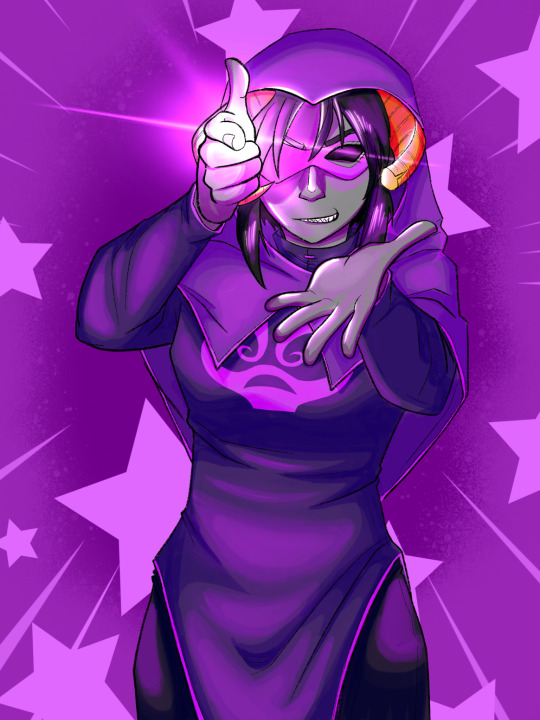
I love drawing her in her godtier outfit
#changed her class from a theif to a rogue#just because of the slight differences in what the classes do#fantroll#homestuck#skully rogers#skully rotgar#prof draws#local ocs#a quick fun doodle#will get back to stinky dragon and Saiki K posting soon#as opposed to being a theif and stealing rage for herself#as a rogue she steals rage and distributes it to others#which works better for her personality#in that she is 100% a bringer of chaos and truly loves to piss people off#rogue of rage
8 notes
·
View notes
Text
HOMESTUCK CLASSES EXPLAINED… badly
WITCHES: the aspect’s personal bitch until they decide it’s their turn to top
HIERS: the aspect’s poorly disguised self insert with unnecessary amounts to plot armor
MAGES: gets traumatized by their hyper-fixation for plot reasons
SEERS: HOLY SHIT ITS TIRESIAS FROM THE ODYSSEY!!!!
PRINCES: aspect-phobic crusaders with anger issues who makes hating this broad concept their entire personality
BARDS: green aura and flies taken to its most lethal state.
MAIDS: don’t you hate it when you try to put on the fitted sheet on the bed but the corners keep getting loose?
SYLPHS: your fairy god mother who has no sense of personal space and consent
THIEVES: [This description has 8een stolen 8y the thief of light ::::)]
ROUGES: the communist party your government warned you about
KNIGHTS: when you mask so hard it becomes your superpower
PAGES: IM A GOOFY GOOBER ROCK 🎸🎸🎸
#homestuck#homestuck class#homestuck witch#witch class#homestuck heir#heir class#homestuck mage#mage class#homestuck seer#seer class#homestuck prince#prince class#homestuck bard#bard class#homestuck maid#maid class#homestuck sylph#sylph class#homestuck thief#thief class#homestuck rogue#rogue class#homestuck knight#knight class#homestuck page#page class
13 notes
·
View notes
Text
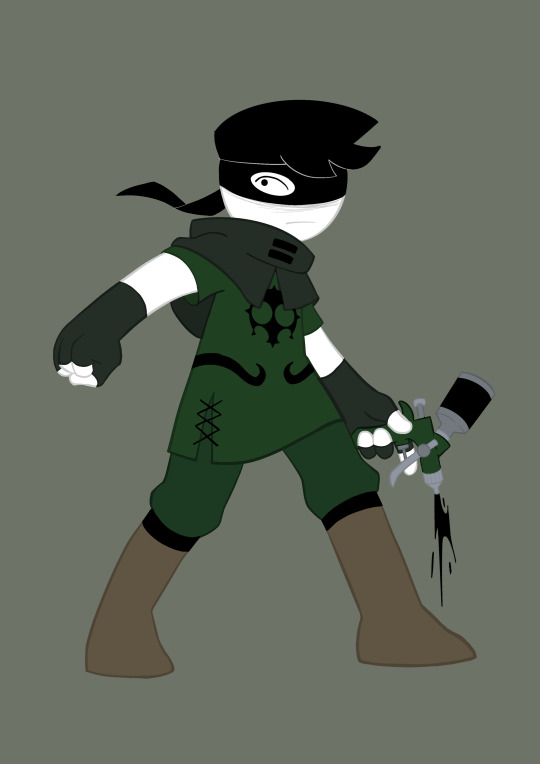


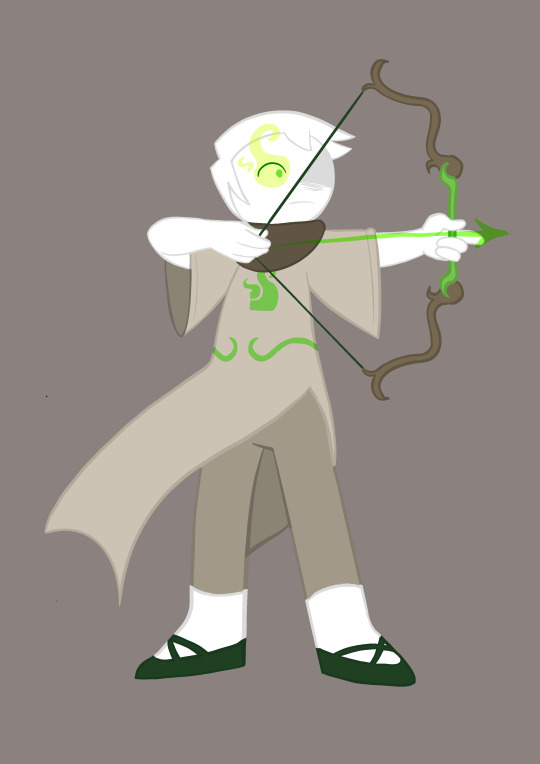
my party for the hypothetical session that my friends and sister have heard far too much about in the past week, in a semi-homestuck style :D
#homestuck#homestuck fanart#hs#hs fanart#home3stuck#rogue class homestuck#maid class homestuck#seer class homestuck#knight class homestuck#rogue of doom#seer of life#knight of space#maid of time#classpect#homestuck fankid#more like fanadult but#homestuck fansession#homestuck fanventure
52 notes
·
View notes
Text



[IMAGE ID: three horizontal flags with nine stripes. the middle stripe is twice as large as the rest of them, which are equally sized. the first flag has these top three colors: light grey, bright orange, and black. the second flag has these top three colors: light grey, bright red, and black. the third flag has these top three colors: light grey, dark red, and black. each flag has these bottom six stripes: deep dark purple, off-white, deep dark purple, light grey, light warm grey, and medium grey. END ID.]
roclasitroll: a gender connected to being a (homestuck class) rogue homestuck troll; this gender is connected to the rogue class, rogue class aesthetics, troll society and aesthetics, the caste system, the hemospectrum, and alternia and/or beforus.
roclasimutablood: a gender connected to being a (homestuck class) rogue mutantblood; this gender is connected to the rogue class, rogue class aesthetics, mutantbloods from homestuck/hiveswap, rarity, being solitary, and if the user deems it appropriate, being able to receive visions.
roclasirust: a gender connected to being a (homestuck class) rogue rustblood; this gender is connected to the rogue class, rogue class aesthetics, rustbloods/burgundy bloods from homestuck/hiveswap, telekinesis, and if the user deems it appropriate, ghosts and communing with them.
@radiomogai @liom-archive @obscurian @libnius @dragonpride17
#roclasitroll#roclasimutablood#roclasirust#rogue class#homestuck troll system#mutantblood system#rustblood system#mogai coining#mogai gender#gender coining#tech.png
7 notes
·
View notes
Text
Introduction to my Classpecting Ideas
This felt like a good idea for something to put out before I put my Knight & Page analysis out there, since I plan on making this a 6 part series. (Potentially 7 if demand for a Lord/Muse addendum is high enough).
So, I'll be laying out my most important philosophies on the subject here for future reference.
Classpecting is...
Point A. Classpecting is malleable.
There is not one rigid, set definition for any Class pair, or any Aspect pairing. The freedom of the author is that they may assign any symbolism to a concept that they may like.
What I mean by this is that people often seem to think that manifestations of an Aspect within Homestuck's narrative paint that object or idea as a concept inherently tied to that Aspect.
Example: Pumpkins & Void. You would not believe the amount of people in the early fandom who swore by the idea that pumpkins were inherently just Void constructs because of their role in Homestuck's narrative.
No? Pumpkins symbolise Void in Homestuck itself and Homestuck itself only only due to a running gag inherent to Homestuck itself.
Anything, with enough narrative basis and existing thematic ties, can serve to symbolise an Aspect. Furthermore, two different authors may have different ideas of what Aspect something represents.
Some authors may see alcohol, for example, as a Void-bound concept owing to its obfuscation of fair judgement. Some may see it as a Light-bound concept owing to the idea of 'in vino veritas' and the tendency of drunkenness to induce truthful confessions. Some may see it as a Life-bound concept owing to its associations with hedonism and impulsive behaviour.
With enough narrative consistence, anything is possible. Homestuck's narrative is not as rigid of a point of reference as some people would swear by it being. This is deeply important.
Point B. Classpecting is not the whole of a character.
I can't exactly phrase this in a satisfactory manner, but... a Classpect is not a personality type in of itself. An individual being a Prince of Heart does not instantly make them Dirk Strider. It merely means that their core value is identity & selfhood, and they interact with it by destroying it. It is that simple!
I see, time and time again, Classpecting blogs acting as if a Classpect is indicative of a character's whole personality and giving guides as to the exact behaviours & quirks a character with that Classpect should have.
I am imploring you to explore wider possibilities when it comes to this. Even if it means sharing a title with a canon character! It doesn't mean you have to just rewrite that canon character because that's not how Classpecting works.
I've seen fanventure characters share titles with canon characters. (Sovereignstuck's Annomi Errata & Dynama Zarrow sharing titles with Dirk & Porrim respectively, and Porrim herself is also a player in that narrative, mind you!)
I've seen fanventure characters share titles with eachother. (Vast Error's Dismas Mersiv is a Rogue of Mind. One of my fantrolls is also a Rogue of Mind!)
In every instance, they are fundamentally different people. I cannot put it any simpler than this.
Point C. Classpecting is always applicable.
That is the perfection of the Classpecting system. You can give a title to any character, from anything ever made. It's not even that difficult if you're half-decent at media analysis!
Quite literally all you need to do is ask yourself two questions.
"What's this character's core value?" and "How do they interact with that?" Do that, and you've got yourself a Classpect.
That's the beauty of it! It's obviously not going to be as airtight as a story that has the Classpecting system baked directly into the narrative, but it's still going to work out!
Hell, do it to yourself! Do it to your friends! The world's your oyster. You can do anything you want, forever, for the rest of time. I'm a Seer of Life! My best friend is a Page of Blood! My mother is a Witch of Hope! Go wild.
Post formatting
For my Classpecting posts, I'll aim to give two related definitions for every Class.
Definition A is the narrative function, what the Class says about the person and how they interact with their Aspect as an abstract concept.
Definition B is the practical function, what the Class says about their role in the session and how they interact with their Aspect as a SBURB construct.
Therefore, we get an idea of both the abstract, personal definition of a Classpect, and the functional, game application of a Classpect.
I'll also aim to give about two or three examples for each individual title about how you could write a character with them, since there are always going to be multiple directions you can take with a Classpect.
Conclusion
tl;dr - what I'm trying to say is this. Classpecting is malleable, easily applicable & capable of saying any number of things, and my posts will aim to give two concise definitions of both narrative and practical function for every title.
I'll get the Knight:Page analysis done either today or tomorrow, and the rest of the Class posts will be staggered releases in order of poll results. Thus, the order is going to be:
Knights & Pages, Deficiency and Exploitation.
Mages & Seers, Experience and Comprehension.
Witches & Heirs, Adherence and Manipulation.
Princes & Bards, Instability and Destruction.
Thieves & Rogues, Inundation and Redistribution.
Maids & Sylphs, Maintenance and Generation.
And, potentially...
7. Lords & Muses, Absolution and Dominion.
And then, subsequently, the order for the Aspect posts, which I've decided based on relevance to the canon, roughly speaking anyways...
Space & Time, Genesis and Terminus.
Breath & Blood, Fluidity and Stability.
Light & Void, Potential and Simplicity.
Heart & Mind, Instinct and Dialectics.
Life & Doom, Progress and Stagnation.
Hope & Rage, Conviction and Iconoclasm.
I look forward to the next post. Until then, take care.
#homestuck#homestuck analysis#classpect#classpecting#knight class#page class#mage class#seer class#witch class#heir class#prince class#bard class#thief class#rogue class#maid class#sylph class#space aspect#time aspect#breath aspect#blood aspect#light aspect#void aspect#heart aspect#mind aspect#life aspect#doom aspect#hope aspect#rage aspect#lord class#muse class
101 notes
·
View notes
Note
what if you combined rogue of heart and knight of time (it'd be davepetasprite's classpect)
davepeta!!!!!! and hey look, there they are!!!
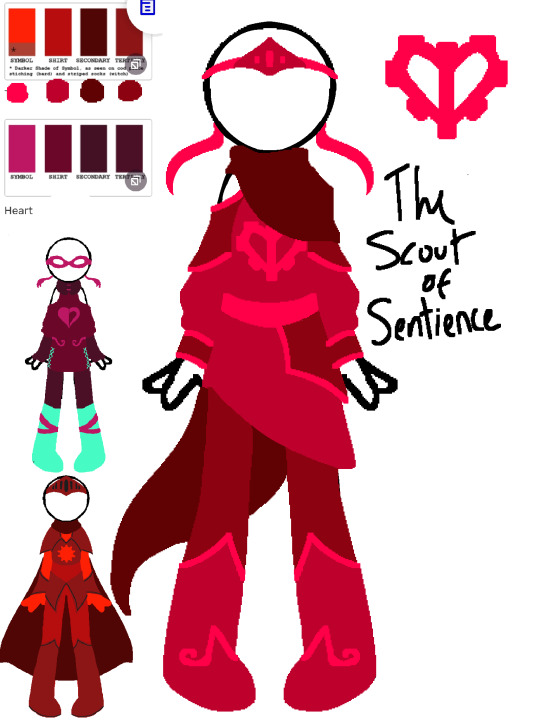

#i will never shut up about the sprites#ever#anyways normally id draw something bigger but i have big plans for the sprites...#stay tuned >:3#homestuck combined classes#homestuck#homestuck art#my art#art#artists on tumblr#fanart#homestuck fanart#digital art#classpect#classpecting#homestuck rogue#homestuck knight#davepetasprite#scout#sentience
118 notes
·
View notes
Text
Anyways, I would like to bring attention to the simple fact of: if you are having trouble classpecting yourself there is a 100% chance you are not a Prince, Thief, or Seer.
There IS a good chance you are a Page, Rogue, or Sylph.
#homestuck#classpect#classpects#aspects#aspect#prince class#thief class#seer class#page class#rogue class#sylph class
28 notes
·
View notes